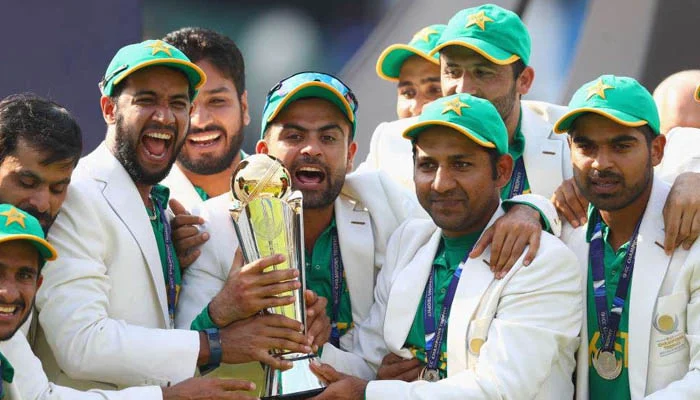
The three locations that the PCB suggested for the 2025 Champions Trophy in the first draft schedule that was just handed to the ICC are Lahore, Karachi, and Rawalpindi. The PCB is moving quickly to renovate the locations that will play host to the nation’s first ICC event in almost three decades, and the tournament has been set for mid-February.
After winning what was believed to be the final Champions Trophy in 2017, Pakistan is the reigning champions. However, the ICC revived the competition in 2022 under the new rights cycle (2022–2027) and gave Pakistan the hosting rights for the 2025 edition.
Although the precise dates of the eight-team competition are still unknown, it is anticipated to take place across two weeks. The ICC sent a team to perform reconnaissance, and the PCB finalised the locations and the schedule.
“We’ve sent the schedule for the matches in Pakistan for the ICC Champions Trophy,” PCB chairman Mohsin Naqvi said at a press conference in Lahore. “The ICC’s security team came and we had a very good meeting. They looked at arrangements here and we’ll also share stadium upgrade plans with them. We’re continuously in touch with the ICC. We are trying to ensure we host a very good tournament in Pakistan.”
Now that India is attending the event, the timetable will probably be the main topic of discussion. As far as ESPNcricinfo is aware, all of the first round’s matches—including India’s—will take place in Pakistan.
Before the schedule is finished, it usually goes through several iterations completed by different teams inside the ICC after the host board submits the draft schedule. The ICC then distributes the completed schedule with the broadcaster and the other boards. The worldwide body’s annual conference in July will be the next official gathering of the ICC.
The political situation between the two nations and the Indian government’s decision to allow the BCCI to send its squad to Pakistan will ultimately determine the outcome of India’s games. Due to the chilly ties between the two countries, India hasn’t visited Pakistan since the Asia Cup in 2008. When hosting the Asia Cup last year, the PCB was forced to use a hybrid format in which some of the games were played in Pakistan and all of India’s matches, including the final, were conducted in Sri Lanka.
Pakistan went to India a month later to participate in the 50-over World Cup, but both countries’ decisions to compete in each other’s tournaments are constantly influenced by politics.
The last time Pakistan hosted an ICC tournament was in 1996, when they co-hosted the ODI World Cup alongside Sri Lanka and India. Since then, there have been two times when security concerns have made teams hesitant to go on tour: first, during the early 2000s, when the 9/11 attacks and the ensuing conflict in neighbouring Afghanistan prevented Australia, England, and New Zealand from going on tour; second, from 2009 to 2015, when no teams went on tour due to a terror attack on a visiting Sri Lankan team. The Champions Trophy was originally scheduled to be hosted by Pakistan in 2008, however it was postponed and relocated to South Africa in 2009. They were also scheduled to co-host the 2011 World Cup, but the location had to be withdrawn.
Pakistan’s domestic season will be centred around the Champions Trophy. Prior to the ICC tournament, they are also hosting a tri-series of ODIs between South Africa and New Zealand (and this year, they are opening their home season with visits from Bangladesh and England).
Due to scheduling constraints, the PSL’s tenth season will need to be held during a suitable window that year. After Pakistan returns from their tour of South Africa, January is an option; however, that would directly conflict with the SA20, the BPL, the BBL, and perhaps the ILT20. The PSL will be played directly during Ramadan if it is scheduled in March, which follows the Champions Trophy. The PCB has traditionally attempted to avoid this conflict because it affects attendance, scheduling, and commercial opportunities.
As Naqvi said, there would also be the difficulty of enhancing the stadiums in the three cities, which haven’t had significant renovations in a while.
“If you look at Gaddafi [stadium in Lahore], it is good, but the viewing experience is not great for cricket. Football maybe, not cricket,” Naqvi said. “We need to improve facilities in the stadiums, where there are some old problems. [The National Stadium in] Karachi is in bad shape. So on May 7th, we’ll finalise bids from international companies who will come and help us design. We will work with local consultants as well. We are already late but we need to do these upgrades in four-five months. It will be a very tough test but we can do it.”

